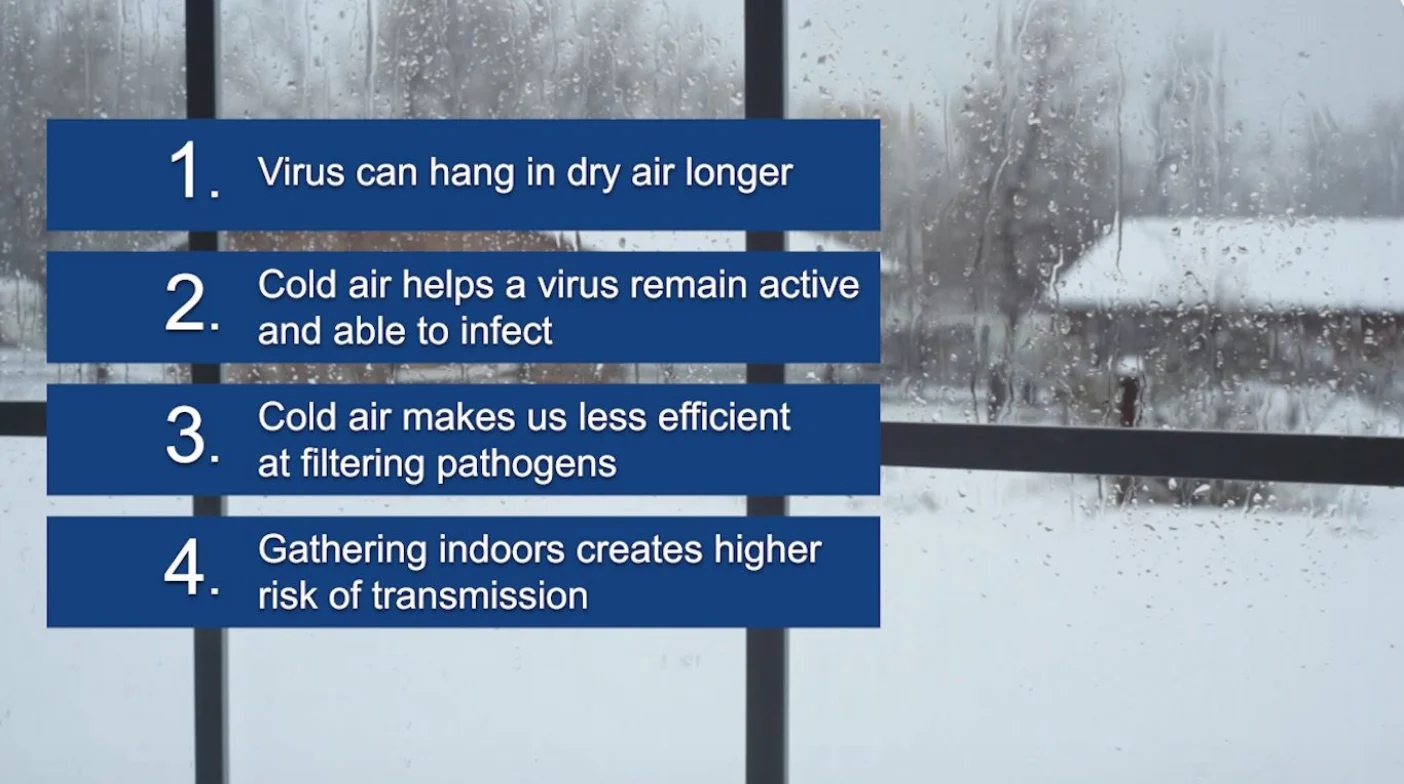
Why and how COVID thrives in cold weather
It looks like Canada's cold winter weather could favour the survival of the COVID-19 virus. Reporter Rachel Schoutsen explains in her latest Health and Weather report, blelow.
Since the beginning of this pandemic, researchers have been analyzing the role weather plays in the survival and spread of COVID-19.
As the seasons have changed and the virus has continued to thrive, researchers have a better understanding of the role the cold plays. To simply break it down, Colin Furness, Infection Control Epidemiologist at the University of Toronto, has identified four reasons why COVID thrives in the cold:

THE VIRUS HANGS IN DRY AIR LONGER
The way our droplets react to cold air plays a large role in how the virus thrives.
“In cold winter weather when you exhale — you know you can see your breath in the winter, you can actually see those droplets. They start to evaporate right away,” Furness explains. “In fact, what you notice with that breath that you can see is it doesn’t go down, it goes up. So the air is dry, the droplets evaporate, they get lighter, they stay in the air longer. So instead of falling quickly, they stay in the air.”
WATCH BELOW: REPORTER KYLE BRITTAIN DEMONSTRATES HOW BREATH MOVES IN THE COLD
COLD AIR HELPS THE VIRUS REMAIN ACTIVE AND ENABLE INFECTIONS
In the cold, the virus not only hangs in the air but also stays active longer. According to Furness, “a virus will stay to die or decompose right away when you exhale. They cannot respire or fix themselves, or protect themselves- they are not really alive. But in cold weather they will stay alive for a very long time.”
COLD AIR MAKES US LESS EFFICIENT AT FILTERING PATHOGENS
The way our body reacts to the cold also puts us at a disadvantage -- similarly to what takes place during the cold and flu season.
“Our own mucus membranes inside our nose and throat are very good at filtering out pathogens. But when they dry out in cold winter weather they do not work nearly as well,” says Furness.
RELATED VIDEO: DO I HAVE THE FLU OR COVID?
INDOOR GATHERINGS CREATES HIGHER RISK OF TRANSMISSION
And lastly, in the winter, we tend to huddle more indoors — and shared air becomes more common.
“When you add those four things together, you have a really big difference between summertime that does not favour COVID, and wintertime that does,” concludes Furness.
While these reasons may make the season ahead appear worrisome, it is important to remember that with the right precautions, there are still ways to limit the transmission of the virus. For more information on what you can do to protect yourself and others, click here.
--
Thumbnail image courtesy: Getty Images
